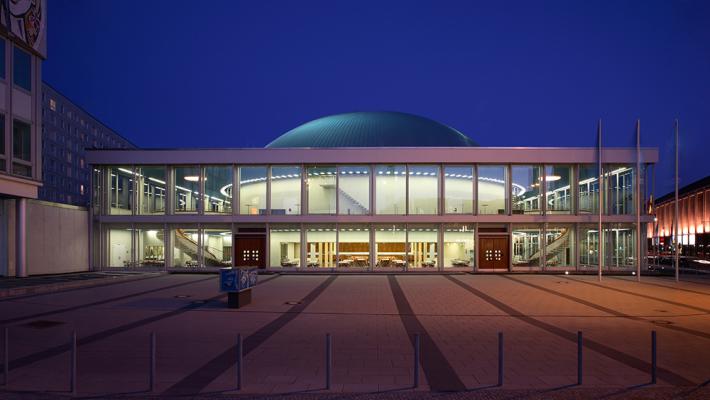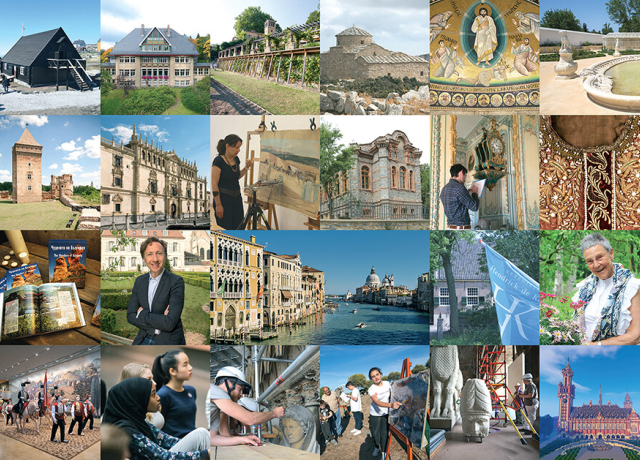EU Prize for Cultural Heritage / Europa Nostra Award Winners for 2018 Unveiled
EU Prize for Cultural Heritage / Europa Nostra Award Winners for 2018 Unveiled
The exciting Alka of Sinj Museum event in Croatia, Sorolla’s Sketches for “Vision of Spain” from Valencia, and the Ief Postino project connecting the histories of Belgium and Italy are just some of the most impressive European heritage initiatives in 2018.
Together with 26 other projects, these three were recently selected by the European Commission and Europa Nostra for the most prestigious award in the field of cultural heritage. As announced on 15 May 2018, 29 winners from 17 countries were recognised by EU Prize for Cultural Heritage/ Europa Nostra Awards.
In the year of European Year of Cultural Heritage celebrations, EU Prize for Cultural Heritage/ Europa Nostra Awards for 2018 carries a special symbolic meaning. The outstanding efforts in highlighting European values and principles were honoured by a group of individuals and expert juries who made a selection among 160 applications from 31 countries. Traditionally, the awards were given in five categories:
- Conservation
- Research
- Dedicated Service
- Education, Training and Awareness-Raising
- Conservation (Europa Nostra Award given to a remarkable heritage achievement from a European country not taking part in the EU Creative Europe programme).
The complete list of winners as well as jury commentary of the projects can be found here.
The European Heritage Award Ceremony

The official European Heritage Award Ceremony will take place on 22 June at the Berlin Congress Centre, when the Seven Grand Prix laureates will also be announced and honoured with the award of €10,000.
Moreover, the ceremony will highlight the winner of the Public Choice Award that is traditionally chosen via online voting open to citizens all over the world. The voting is open until 10 June as an opportunity for everyone to support their favourite heritage site or project and acknowledge the most remarkable European initiatives from the list.
Co-hosted by European Commissioner Tibor Navracsics and Maestro Plácido Domingo, the ceremony will be a spotlight event that will gather Europe’s most notable heritage experts. Shortly upon the public announcement, both hosts congratulated the winners in their official statements. Mr. Navracsics and Mr. Domingo praized the work of the awarded heritage innovators and their contribution to preserving Europe's common values.
“Our Award winners are living proof that our cultural heritage is far more than the memory of our past; it is key to understanding our present and a resource for our future. We must therefore use the European Year of Cultural Heritage to recognise the value of our shared cultural heritage for the future of Europe!” Plácido Domingo, the renowned opera singer and President of Europa Nostra.
Tibor Navracsics, European Commissioner for Education, Culture, Youth and Sport, supported this view, emphasising the vital role of heritage in our everyday lives.
“Cultural heritage in all its different forms is one of Europe’s most precious assets. It builds bridges between people and communities as well as between the past and the future. It is central to our identity as Europeans and also has a vital role in driving social and economic development. I congratulate the winners of the 2018 EU Prize for Cultural Heritage / Europa Nostra Awards and their teams for their exceptional and innovative work.”
Additionally, this year’s winners will have the opportunity to participate in the European Cultural Heritage Summit themed Sharing Heritage - Sharing Values. Taking place between 18 and 24 June in Berlin, the event will be co-hosted by Europa Nostra, the German Cultural Heritage Committee (DNK), and the Prussian Cultural Heritage Foundation (SPK). Being one of the most significant events of the European Year of Cultural Heritage, the goal of the Summit is to spark interest in public and private stakeholders for the European Cultural Heritage Agenda.
The European level recognitions like these add value to the efforts of heritage communities to preserve the histories and traditions that bond all Europeans. In the celebratory year for Europe's heritage, they are particularly important as they promote the passion behind the heritage work not only during the European Year of Cultural Heritage, but as part of a grander cause of heritage preservation.
Photo Credits:
